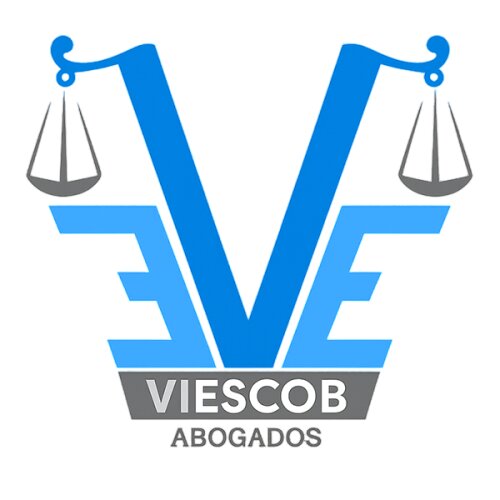Best Divorce & Separation Lawyers in Providencia
Share your needs with us, get contacted by law firms.
Free. Takes 2 min.
Free Guide to Hiring a Family Lawyer
List of the best lawyers in Providencia, Chile
About Divorce & Separation Law in Providencia, Chile
Divorce and separation laws in Providencia, Chile, are governed by national legislation with legal proceedings typically managed in local family courts. Providencia, as a prominent commune within Santiago, follows Chilean laws that regulate marriage dissolution, property division, child custody, and spousal or child support. These legal processes are designed to provide fair treatment to all parties while protecting the interests of any children or vulnerable individuals involved.
Separation and divorce are significant life events, often requiring a formal process to legally dissolve the marital bond or establish new living arrangements. In Chile, separation can be either legally recognized (judicial separation) or simply physical (living apart), while divorce results in the final termination of the marital relationship under the law.
Why You May Need a Lawyer
Securing legal counsel for divorce or separation is crucial for various reasons. A lawyer can help you understand your legal rights, navigate complex paperwork, represent your interests in court, and negotiate settlements regarding assets, custody, and financial support. Some common situations where legal assistance becomes important include disagreements over child custody, disputes about asset division, cases of domestic violence, concerns about alimony or child support, and when you are unsure about the long-term implications of any agreement.
Even when parties attempt an amicable separation, a lawyer’s guidance is often essential to ensure that the agreement is fair and enforceable and that it complies with Chilean law.
Local Laws Overview
Divorce and separation in Providencia are subject to the main framework provided by the Chilean Civil Marriage Law (Law No. 19.947). Here are key aspects relevant in Providencia:
- Grounds for Divorce: There are two main legal grounds for divorce-mutual consent (after at least one year of separation) and unilateral divorce (after at least three years of separation if only one spouse wants the divorce).
- Judicial Separation: Couples may formalize separation through the courts, which regulates property and child arrangements without ending the marriage.
- Property Division: Chile follows community property rules unless a separate property regime was agreed upon. Assets acquired during the marriage are typically divided equally.
- Child Custody: The best interests of the child are prioritized. Courts may grant full or shared custody and determine visitation rights.
- Support and Maintenance: Child support is mandatory by law. Spousal support may be awarded under certain circumstances.
- Domestic Violence: Protective measures and expedited processes are available in cases involving domestic abuse.
- Court Jurisdiction: Family matters are handled by the local family court, which for Providencia is within the jurisdiction of Santiago’s family court system.
Frequently Asked Questions
What is the difference between separation and divorce in Providencia, Chile?
Legal separation is a court-sanctioned arrangement where spouses live apart but remain legally married, while divorce legally ends the marriage and allows both parties to remarry.
How long do I have to be separated before I can get divorced?
For a mutual consent divorce, at least one year of separation is required. For a unilateral divorce, you must be separated for at least three years.
How is property divided after a divorce?
Unless there is a special marital contract, property acquired during the marriage is divided equally between the spouses according to Chilean community property laws.
Who gets custody of the children?
The court determines custody based on the best interests of the child. Custody may be shared or awarded to one parent, with visitation rights for the other parent.
How is child support calculated?
Child support is calculated based on the financial situations and needs of both parents and the child. The court uses established guidelines to determine a fair amount.
Can I get alimony or spousal maintenance?
Spousal maintenance may be granted if one party is financially dependent on the other or unable to support themselves for valid reasons. The court assesses each situation individually.
Is it necessary to hire a lawyer for divorce in Providencia?
While not legally required, it is strongly recommended to hire a lawyer to ensure your rights are protected and the divorce process proceeds smoothly.
What if my spouse does not agree to a divorce?
You may still obtain a unilateral divorce after three years of separation if one spouse does not consent.
How long does the divorce process take?
The timeline varies depending on the complexity of the case and whether both parties agree. Mutual consent divorces tend to be quicker, often within a few months, while contested divorces may take longer.
What should I do if there is domestic violence involved?
If you are facing domestic violence, contact the police immediately or seek urgent protective measures through the family court. There are expedited processes and special resources available to protect victims.
Additional Resources
If you need further help or information about divorce and separation in Providencia, the following resources can be valuable:
- Local Family Courts: The family courts have dedicated staff and information desks to guide you through legal procedures.
- National Women’s Service (SernamEG): Provides support and advocacy for women, including those experiencing domestic violence or family difficulties.
- Legal Aid Corporation (Corporación de Asistencia Judicial): Offers free or low-cost legal advice and representation for individuals with limited financial resources.
- Municipal Offices: Providencia’s Municipalidad provides information and referral services regarding family law matters.
- Chilean Ministry of Justice and Human Rights: Supplies up-to-date legal information and access to online services for family matters.
Next Steps
If you are considering divorce or separation in Providencia, Chile, start by gathering all relevant documents, such as marriage certificates, financial records, and proof of separation if applicable. Schedule a consultation with a family law attorney familiar with the Providencia area to discuss your particular situation and outline the best legal strategy. If needed, approach the family court or local legal aid centers for further support. Advocacy organizations and municipality staff can also assist with initial information.
Taking early, informed steps can help you protect your rights, ensure the welfare of any children, and make the process more manageable. Do not hesitate to reach out to legal professionals or support organizations as early as possible to clarify your options and proceed with confidence.
Lawzana helps you find the best lawyers and law firms in Providencia through a curated and pre-screened list of qualified legal professionals. Our platform offers rankings and detailed profiles of attorneys and law firms, allowing you to compare based on practice areas, including Divorce & Separation, experience, and client feedback.
Each profile includes a description of the firm's areas of practice, client reviews, team members and partners, year of establishment, spoken languages, office locations, contact information, social media presence, and any published articles or resources. Most firms on our platform speak English and are experienced in both local and international legal matters.
Get a quote from top-rated law firms in Providencia, Chile — quickly, securely, and without unnecessary hassle.
Disclaimer:
The information provided on this page is for general informational purposes only and does not constitute legal advice. While we strive to ensure the accuracy and relevance of the content, legal information may change over time, and interpretations of the law can vary. You should always consult with a qualified legal professional for advice specific to your situation.
We disclaim all liability for actions taken or not taken based on the content of this page. If you believe any information is incorrect or outdated, please contact us, and we will review and update it where appropriate.











